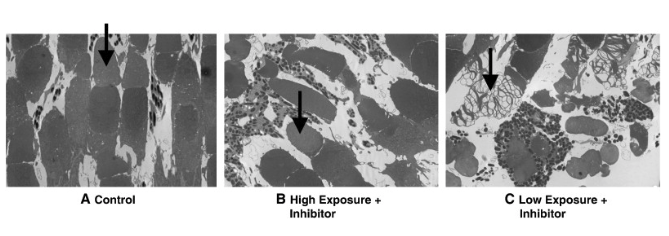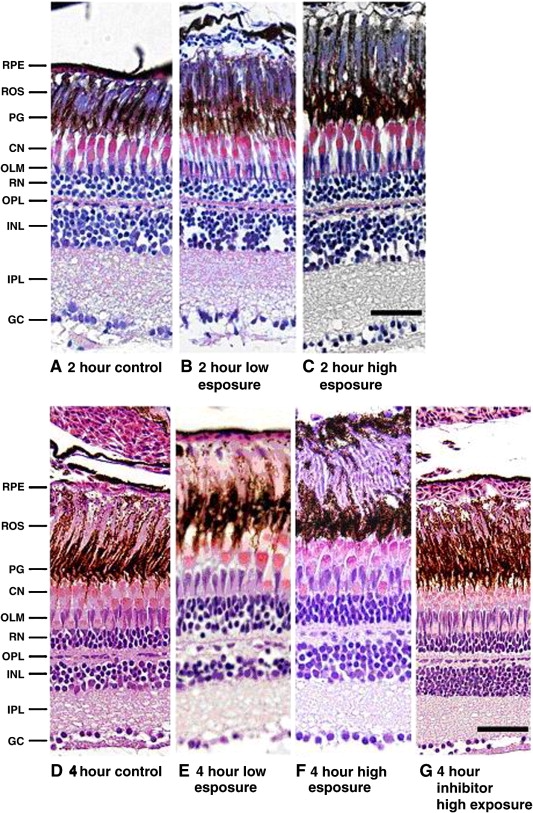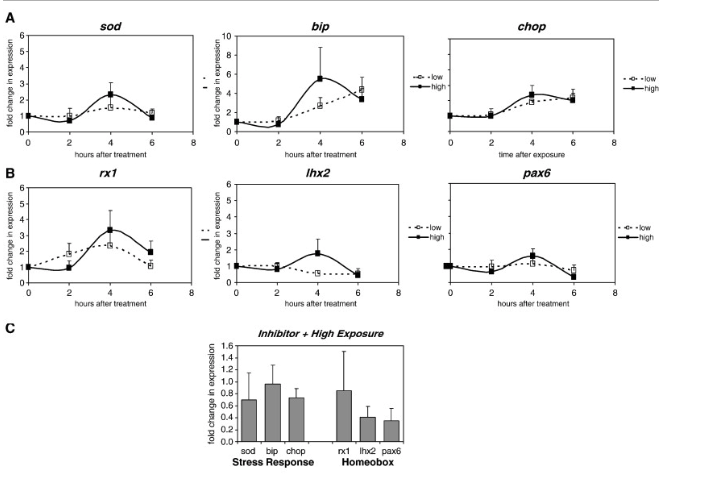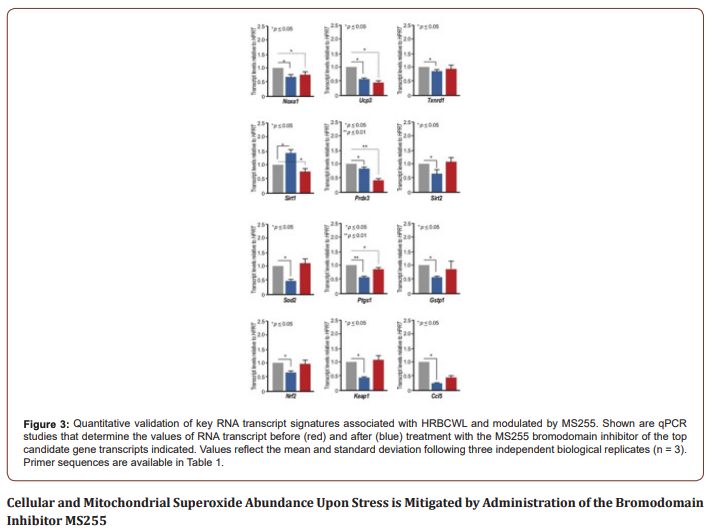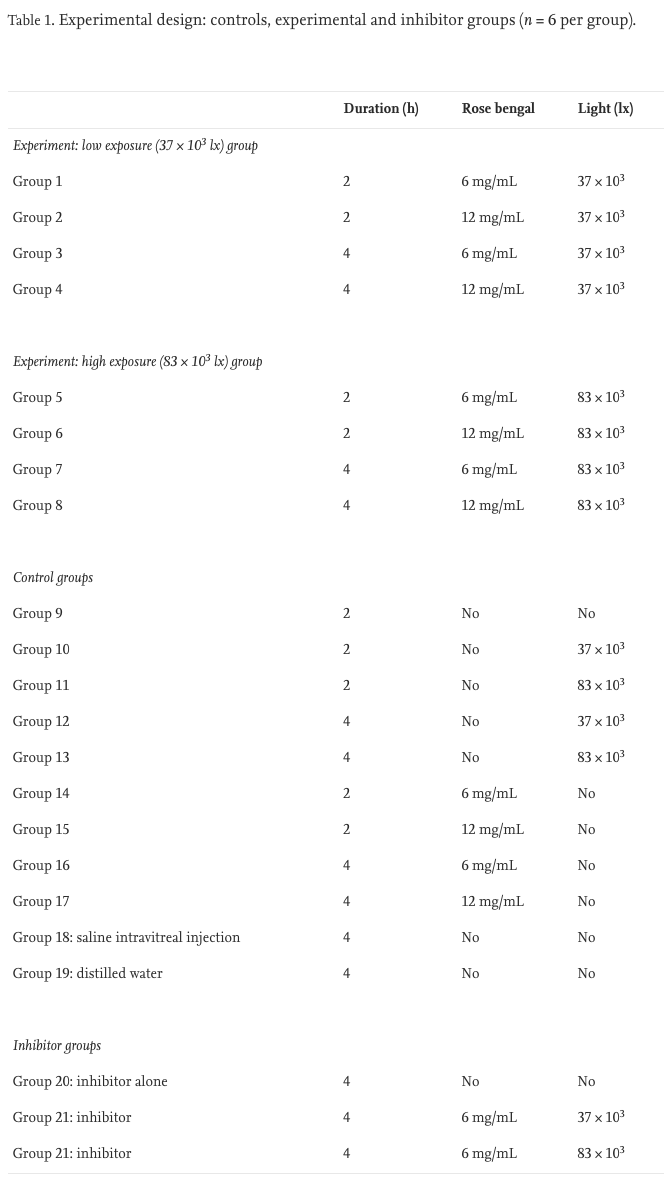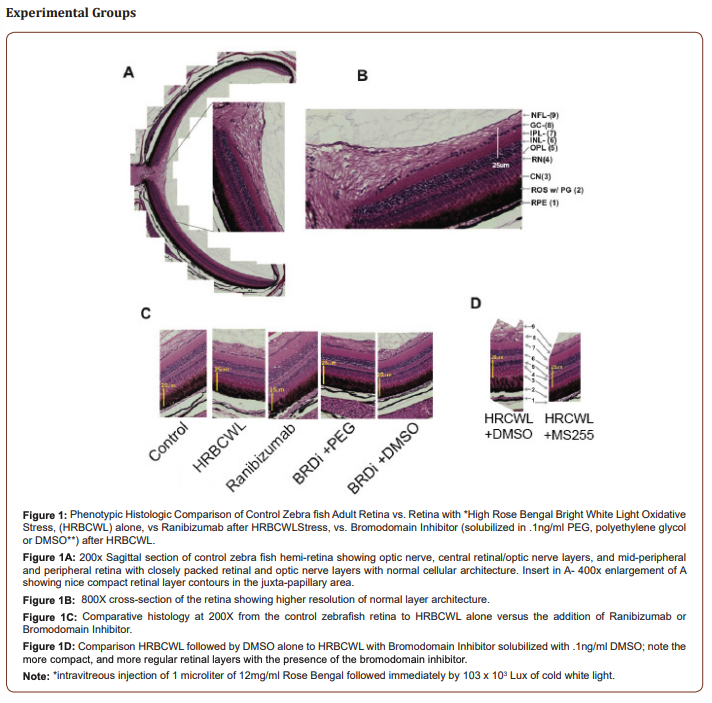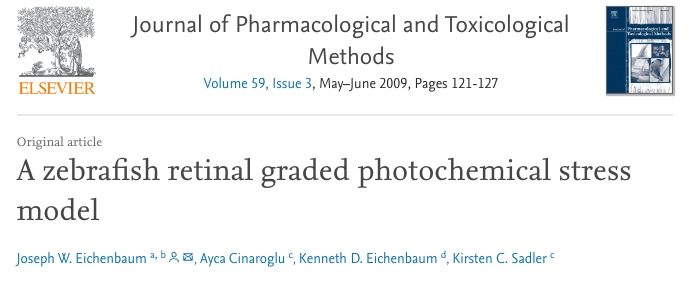ISGEO-22 Workshop
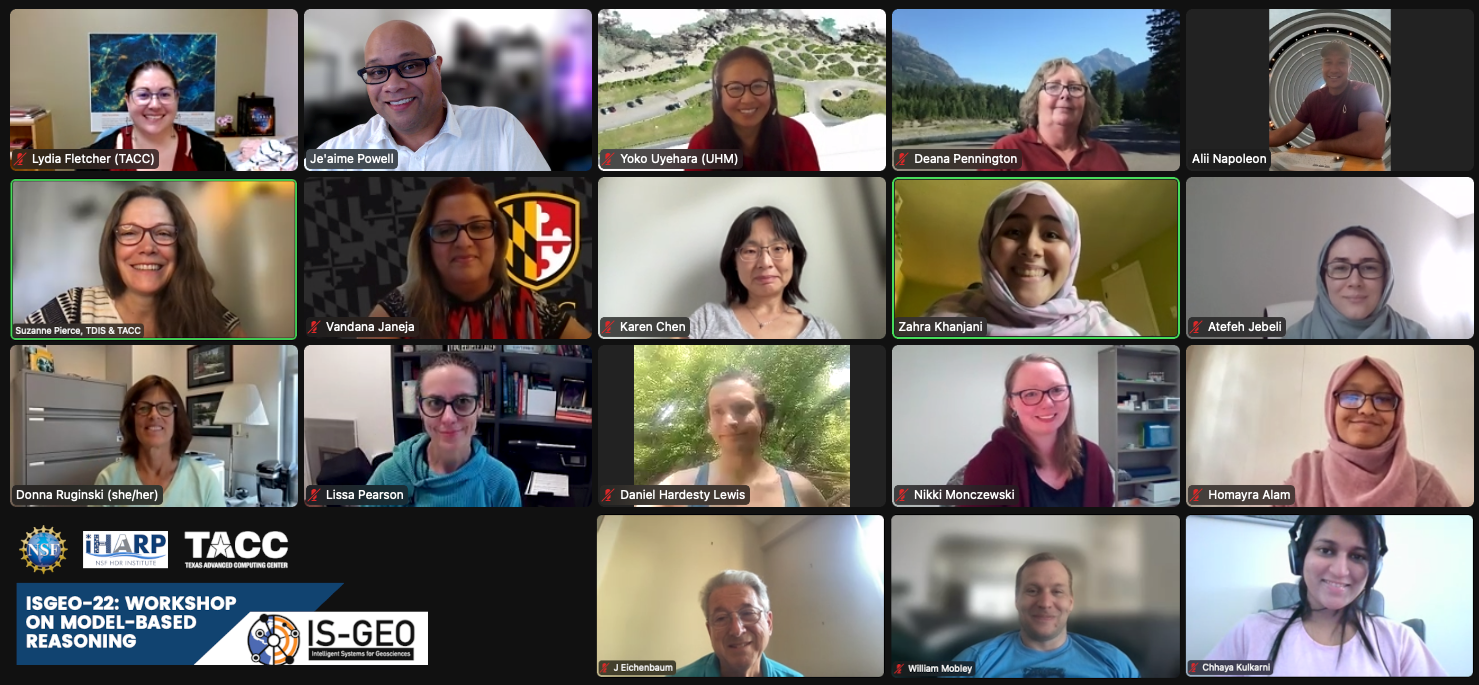
![]() Final Presentations Live Stream [8/19/22]
Final Presentations Live Stream [8/19/22]
Overview
IS-GEO and iHARP are pleased to announce a virtual workshop on Model-based Reasoning. Invited expert, Dr. Deana Pennington from the University of Texas at El Paso (UTEP) brings prior expertise in evaluating social learning and model-based reasoning together with clear guidance for successful transdisciplinary team building.
Model-based reasoning uses mental models, simulation models, and everything in between to understand how researchers can collaboratively integrate their subject matter expertise of problems and generate combined knowledge from their different perspectives.
This workshop will provide methods that engage researchers across disciplines to explore how data and models can inform AI. Hands-on activities will support the development of conceptual models and participatory modeling implementation using data across applications in polar regions, hydrologic models, hazards planning, and climate change impacts on communities, as well as other topics salient to workshop participants.
A mini-hackthon will be hosted during the latter half of the workshop allowing geosciences, cognitive sciences, data science, and advanced intelligent systems to form mixed teams and then pitch, develop, and present results from adhoc project ideas created during this event.
Fields of Intrest from Participants
Workshop Sessions and Topics include:
- Learn how to bridge across disciplines for convergent research
- Data science skills for spatiotemporal data modeling,
- Best practices for cyberinfrastructure design
- High resolution image processing and analysis,
- Ontological descriptions of common tools used in earth sciences and data science
- Sharing pedagogical resources that can be used in your classroom
- Earth systems modeling of antarctica ice sheets,
- Lightning talks from fellow participants
Participant Gallery
Project Teams
Semanta 🤖Team Lead: LydiaTeam Members:
Team Goal: |

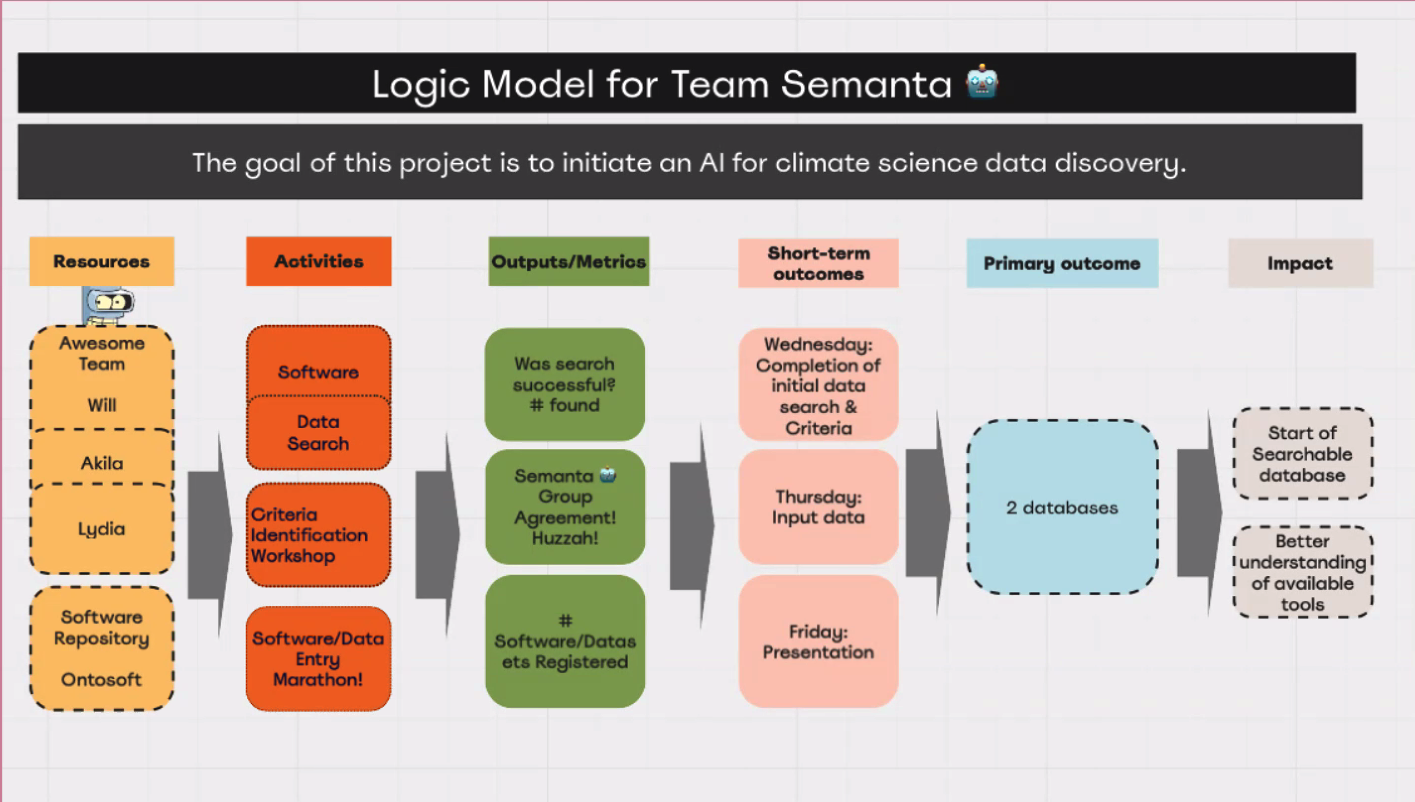
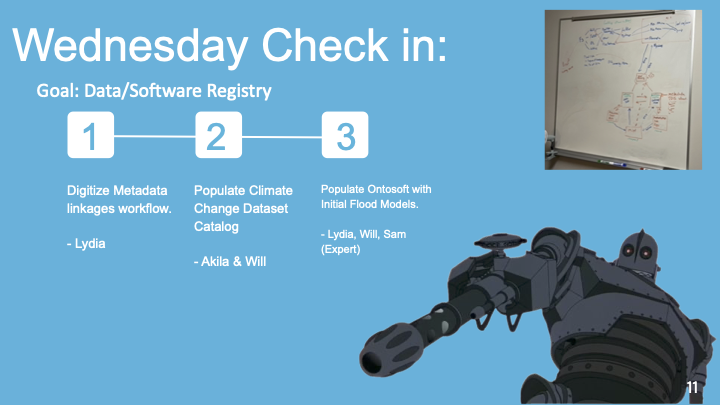
|
IcebreakerTeam Lead: HomayraTeam Members:
Team Goal: |



|
Hawai´iTeam Lead: YokoTeam Members:
Team Goal: |



|
Onto-Somethin'Team Lead: SuzanneTeam Members:
Team Goal: |



|
Speakers

Deana Pennington
Associate ProfessorUniversity of Texas at El Paso
Trained as a physical geographer with specializations in organizational learning and program evaluation, Dr. Pennington's research revolves around cross-disciplinary study of climate change impacts on human/natural systems. She focuses on three categories of investigations 1) integrated modeling of land change; 2) studies of collaboration, synthesis, and learning; and 3) technical approaches for complex interdisciplinary projects. The latter includes a decade of experience using developmental evaluation to improve project outcomes. She is also Associate Dean for Faculty Mentoring and Development in the College of Science at University of Texas at El Paso.
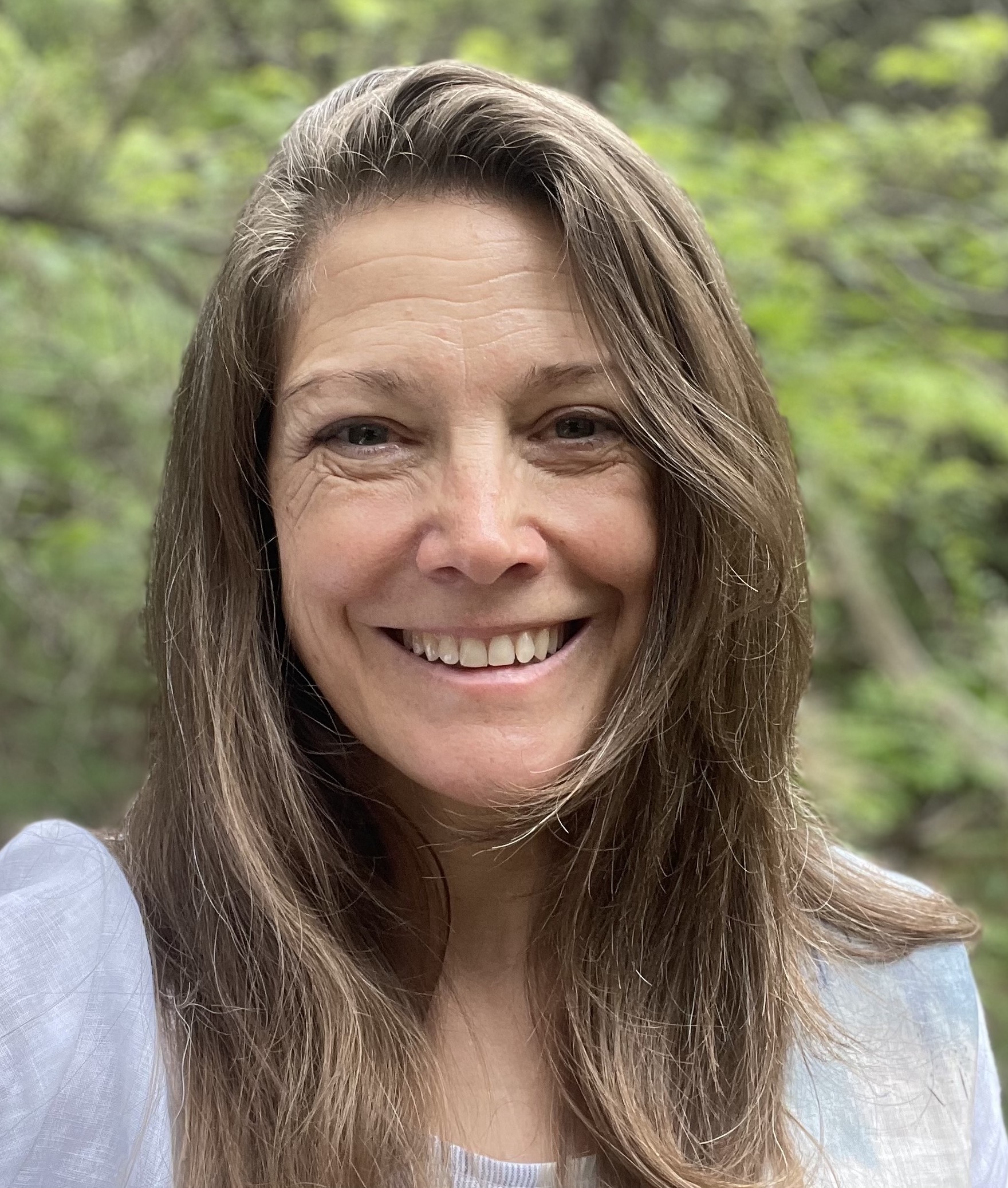
Suzanne Pierce
Research Scientist/DirectorTexas Advanced Computing Center, Texas Disaster Information System, Intelligent Decision Support Systems, and The University of Texas at Austin
Research Scientist with Texas Advanced Computing Center (TACC) at The University of Texas at Austin. Dr. Pierce is the lead for a national community of researchers using Artificial Intelligence to understand Earth (IS-GEO.org). Results from her research develop tools and techniques that aid integrated modeling and group decision support to improve resilience at regional scales. She's received awards both locally and internationally for innovation and engagement. Currently, Dr. Pierce is leading the Texas Disaster Information System.

Lisa Garbrecht
Director Of STEM Evaluation ServicesTexas Advanced Computing Center, Evaluation Services for the Expanding Pathways in Computing (EPIC)
Lisa Garbrecht is the Director of STEM Evaluation Services for the Expanding Pathways in Computing (EPIC) division of TACC that was launched in 2019. Lisa oversees EPIC’s evaluation of numerous internal and external programs and research grants funded by national, state, and local organizations, most of which aim to broaden participation in computing and STEM education. Lisa is the former Director of Evaluation Services of the UT Austin's College of Education STEM Center and has over 20 years of experience designing and conducting program evaluation and research on STEM education, professional development, and research projects. Her research focuses on using culturally responsive evaluation and research methods to assess efforts to improve and broaden participation in K-20 STEM education and careers, as well as assessing student learning, attitudes, and outcomes from STEM curriculum and outreach programs. Lisa earned her PhD in Educational Psychology from Arizona State University and her MA in Counseling in Education and BS in Journalism from Northern Arizona University.

Jeaime Powell
Technical Research Design Analyst/Sr. Systems Administrator/Broadening Participation Hackathon CoordinatorTexas Advanced Computing Center
Jeaime Powell currently works as a Senior Systems Administrator and Technical Research Design Analyst at the Texas Advanced Computing Center(TACC) within the University of Texas at Austin. While supporting high-performance computing users he also leads hackathons, several STEM-based high school summer camps, facilitates programming training sessions, and lectures courses in scientific programming. In the role of XSEDE Broadening Participation Hackathon Coordinator, he has most recently hosted the ADMI22 Hackathon and the HPC in the City Hackathon at Supercomputing21.

Mathieu Morlighem
ProfessorDartmouth College
My group focuses on the physics of glacier ice and the role of the ice sheets in the climate system. Ice sheets play a central role in the climate system: they store significant amounts of fresh water and are the conveyor belts for transporting snow that accumulates inland back into the oceans. The interactions of the ice sheets with the atmosphere and the ocean have an internal variability but also affect the coupled ice sheet–climate response to external forcings on time scales of months to millions of years. If the current warming of the climate continues, the ice sheets will respond at a yet unknown rate, with unknown consequences for the rest of the climate system. A better understanding of the processes driving these changes is critical to improve projections of sea level rise.

William Mobley
Research AssociateTexas Advanced Computing Center
Dr. Mobley joined the Multi Modal Applications Team in June of 2022. He is currently a research associate focusing on Robust Decision Making under uncertainty and Geospatial Applied Machine Learning. Previously Dr. Mobley was an Assistant Research Scientist at the Institute for Disaster Resilient Texas.

Tim Cockerill
Director of User Services and Deputy Project Director of DesignSafeTexas Advanced Computing Center
Tim Cockerill is TACC’s Director of User Services. He oversees the allocations process by which computing time and storage is awarded on TACC’s HPC systems. The User Services team is also responsible for user account management, training, and user guides. Tim also currently serves as the DesignSafe Deputy Project Director, providing a web-based platform supporting natural hazards research. Tim is co-PI on two NSF CC* awards providing training and research support for underserved/under-resourced universities and community colleges. Tim joined TACC in January, 2014, as the Director of Center Programs responsible for program and project management across the Center’s portfolio of awards. Prior to joining TACC, he was the Associate Project Director for XSEDE and the TeraGrid Project Manager. Before entering the world of high performance computing in 2003, Tim spent 10 years working in startup companies aligned with his research interests in gallium arsenide materials and semiconductor lasers. Prior to that, Tim earned his B.S., M.S., and Ph.D. degrees from the University of Illinois at Urbana-Champaign and was a Visiting Assistant Professor in the Electrical and Computer Engineering Department.

Emily Clark
Project Manager for CUAHSIConsortium for Universities for the Advancement of Hydrologic Science, Inc. (CUAHSI)
Emily Clark is a Project Manager at the Consortium for Universities for the Advancement of Hydrologic Science, Inc. (CUAHSI). In her role at CUAHSI, Emily has recently been involved in customer discovery and user experience evaluations for CUAHSI programs and services and the HydroShare CyberInfrastructure. HydroShare provides an online collaboration environment for sharing, publishing, and archiving hydrologic data, models, and resources. Emily holds a BS in Environmental Science from the University of Tampa, an MPA in Environmental Science and Policy from Columbia University, and a Project Management Professional (PMP) certification.

Stephanie Baker
Research AssociateTexas Advanced Computing Center, Expanding Pathways in Computing (EPIC)
Stephanie Baker is a Research Associate on the STEM Evaluation Services team at UT TACC. Since joining TACC in 2019, Stephanie conducts internal and external evaluations of STEM education programs and participates in research projects and outreach programs within TACC’s Expanding Pathways in Computing (EPIC) division. She leads the evaluations of TACC’s DesignSafe CI, UT Department of Computer Science’s Center for Inclusive Computing program, and several other projects. Prior to joining TACC, she served as a Research Associate at UT’s STEM Center in the College of Education. Stephanie’s primary research focuses on developing practical measures for assessing noncognitive factors crucial for student success in STEM subjects. She is also interested in the ethical application of natural language processing techniques to education research. Stephanie earned her MS in Mathematics from The University of Texas-Pan American, a Postgraduate Certificate in Artificial Intelligence and Machine Learning from UT, and a PhD in Mathematics Education from UT.
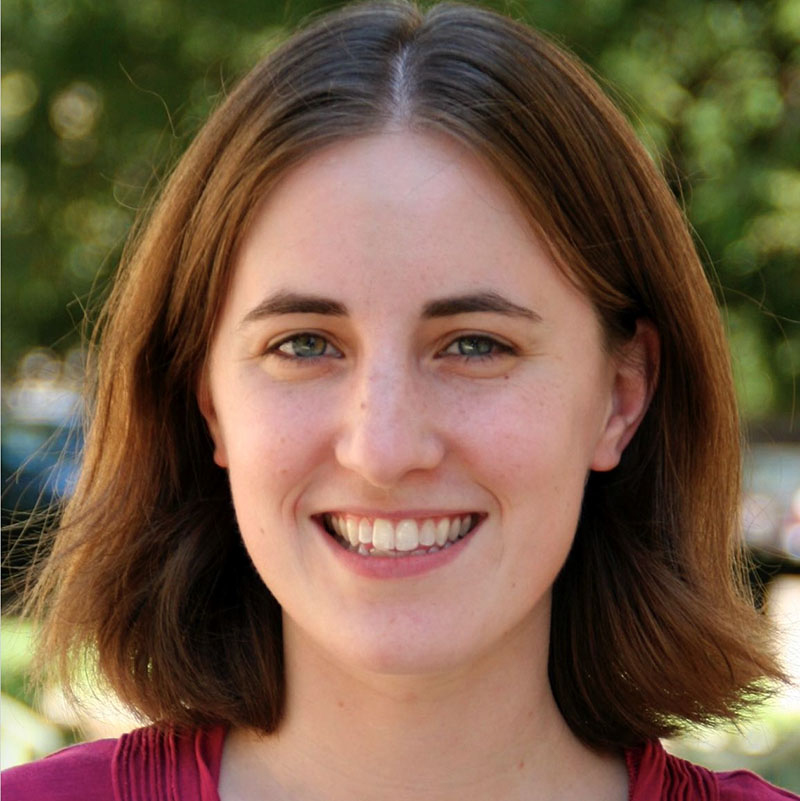
Miriam Jacobson
Research AssociateTexas Advanced Computing Center, Expanding Pathways in Computing (EPIC)
Miriam Jacobson is a Research Associate in the EPIC STEM Evaluation Services division at UT TACC. Since joining TACC in 2020, Miriam has conducted internal and external evaluation of multiple STEM education programs. She led the external evaluation of CUAHSI’s HydroShare CI and leads evaluations of UT’s Institute for Foundations of Machine Learning and the University of California, San Diego’s Institute for Learning-enabled Optimization at Scale, as well as other projects. She previously worked at ICF as a Lead Research Scientist and studied workforce development initiatives at the federal and local level. She has conducted research on culturally responsive evaluation approaches and the dissemination of evidenced-based practices. Miriam received her PhD from Claremont Graduate University in Evaluation and Applied Research Method.
Lightning Talks
[Lightning Talk] Seeing Paradise through Clouds: Generating Annual Cloud Cloud-free Mosaics from Landsat Landsat-8 Imagery
Yoko Uyehara
StudentUniversity of Hawaii at Manoa
Presentation Files: [Slides]
[Lightning Talk] A Zebra Fish Model for studying Retinal Degeneration
Joseph Eichenbaum
ResearcherUniversity of Hawaii
Presentation Files:
-
Inhibition of BRD4 Attenuates Inflammation and Oxidative Stress in Retina
[Paper Link] [Paper PDF]
-
A zebrafish retinal graded photochemical stress model
[Paper Link] [Paper PDF]
Images and Figures:
[Lightning Talk] Visions of the Arctic Future
Patrick Keys
FacultyColorado State University
Presentation Files: [Slides]
-
Visions of the Arctic Future: Blending Computational Text Analysis and Structured Futuring to Create Story-Based Scenarios
[Paper Link]
[Lightning Talk] XSEDE to ACCESS Transition: Allocations Overview
Agbeli Ameko
ResearcherNCAR CISL
Presentation Files: [Slides]

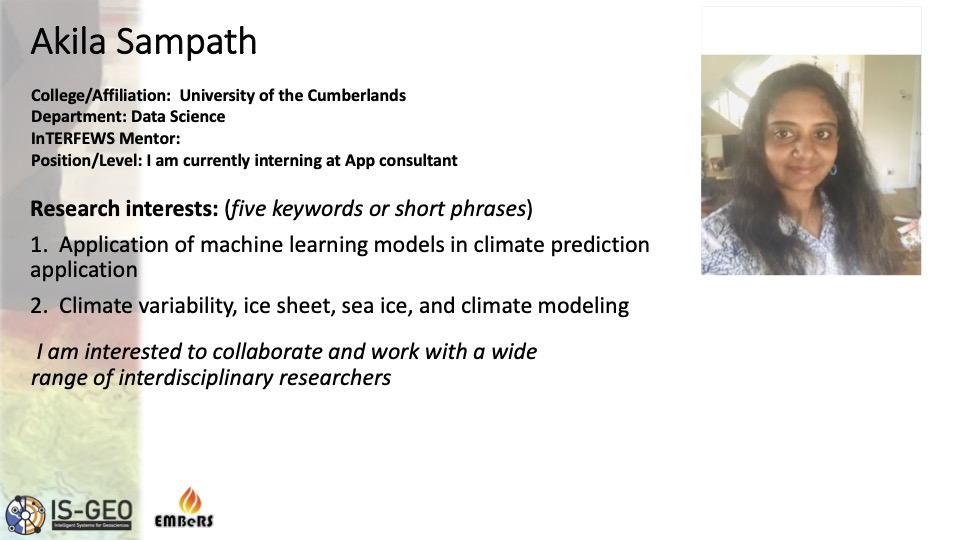
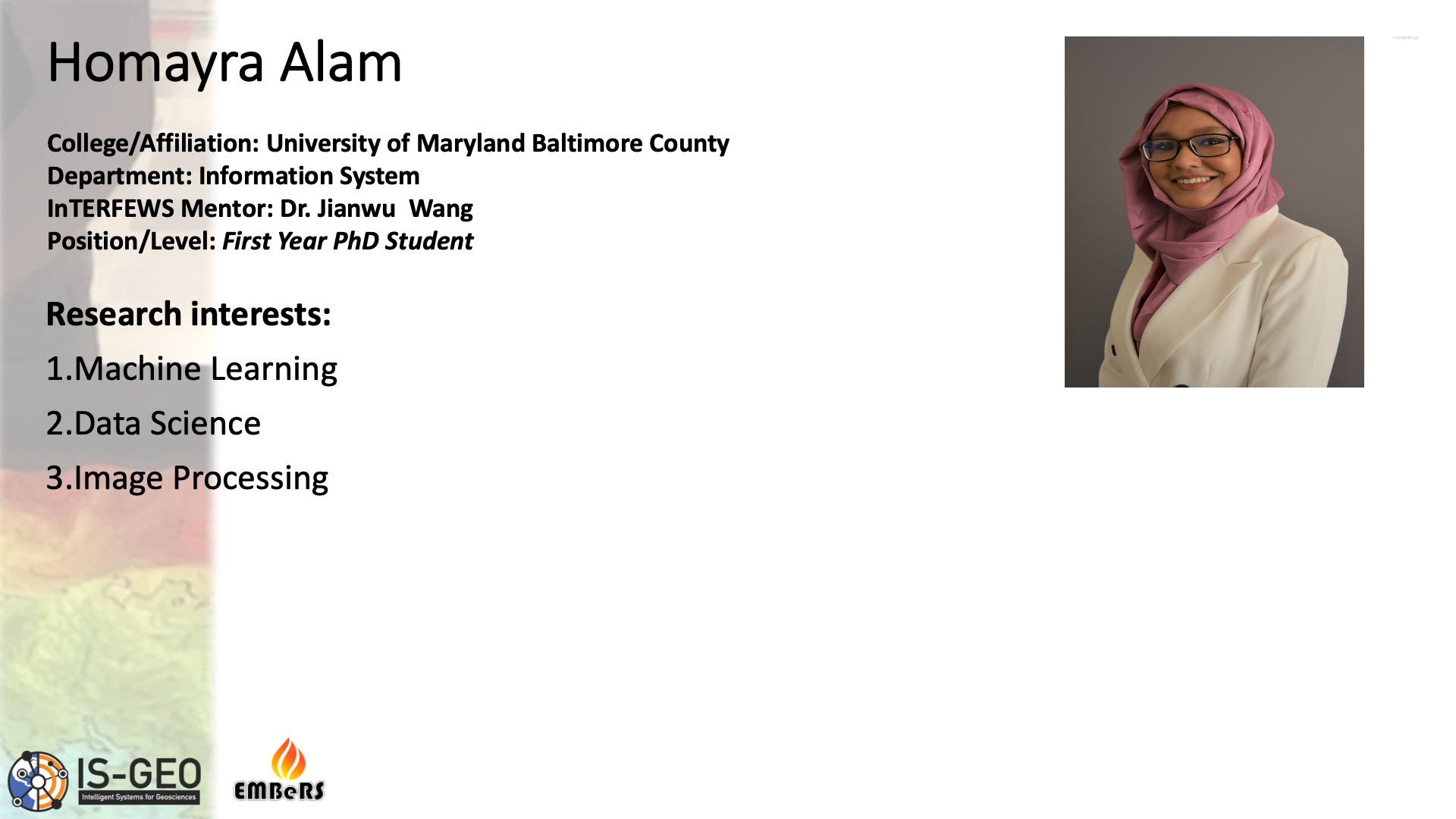
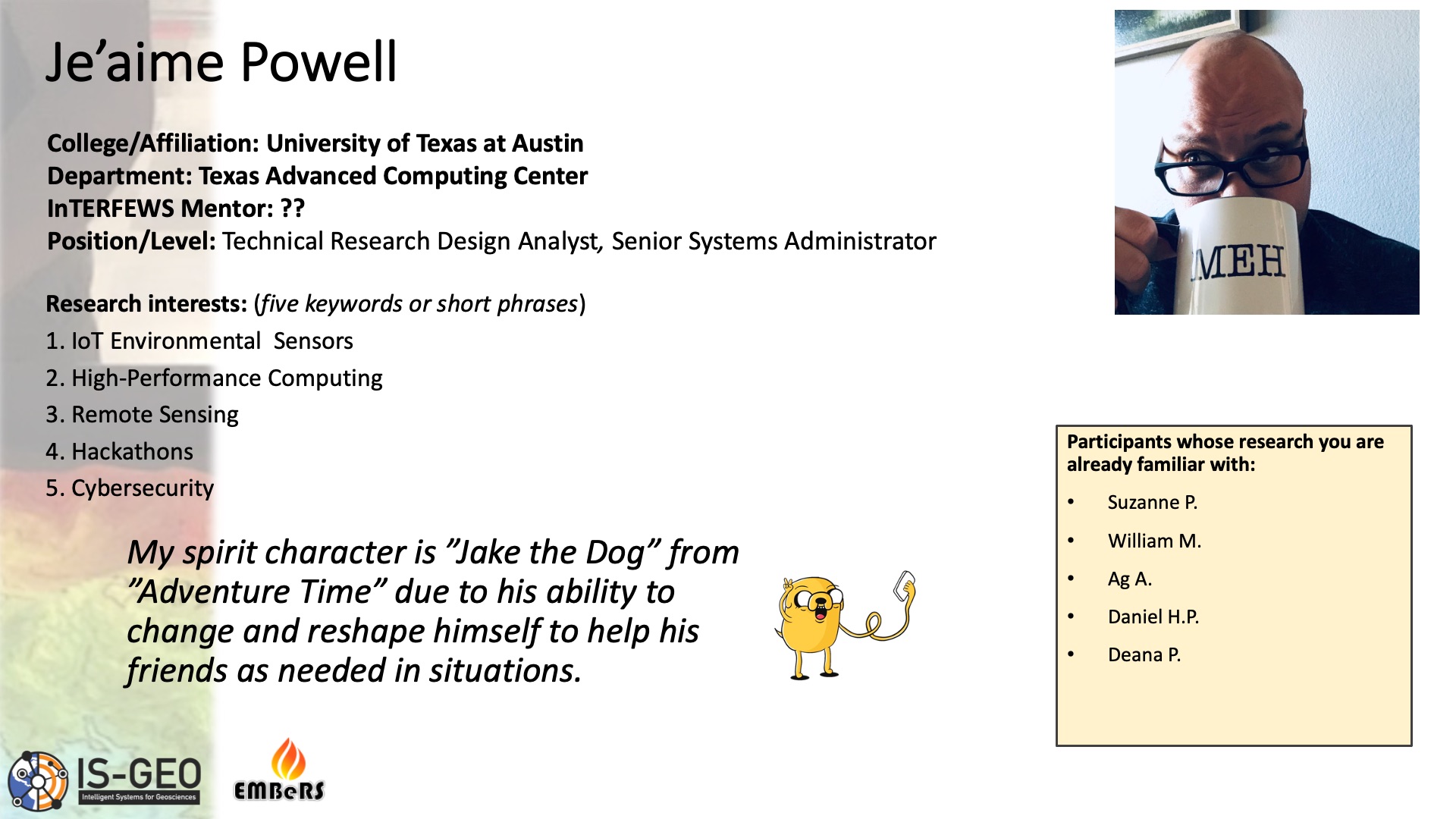
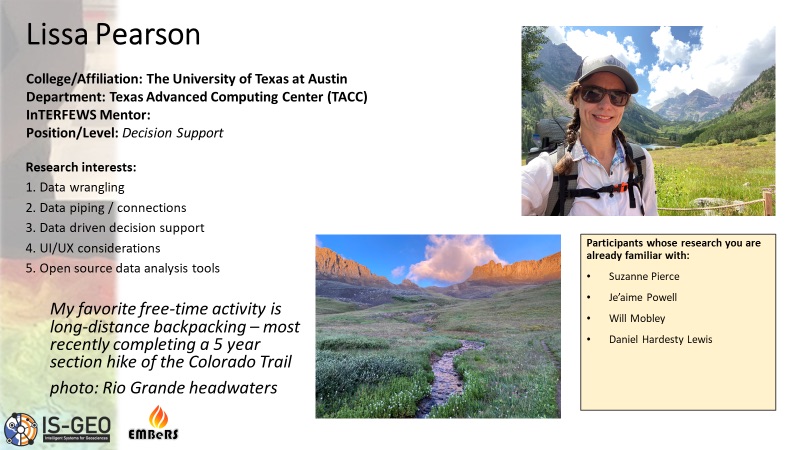
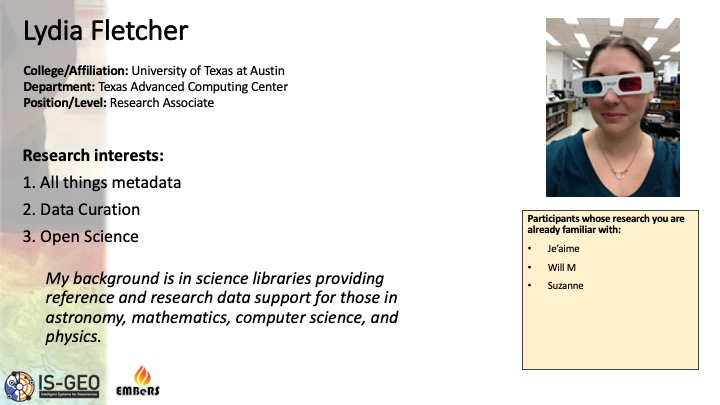
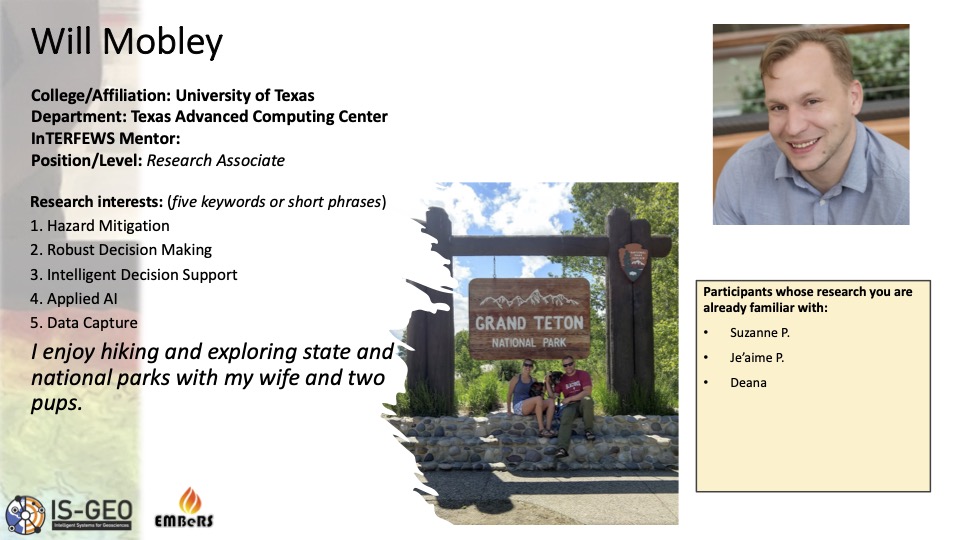
 Team Github Repo
Team Github Repo